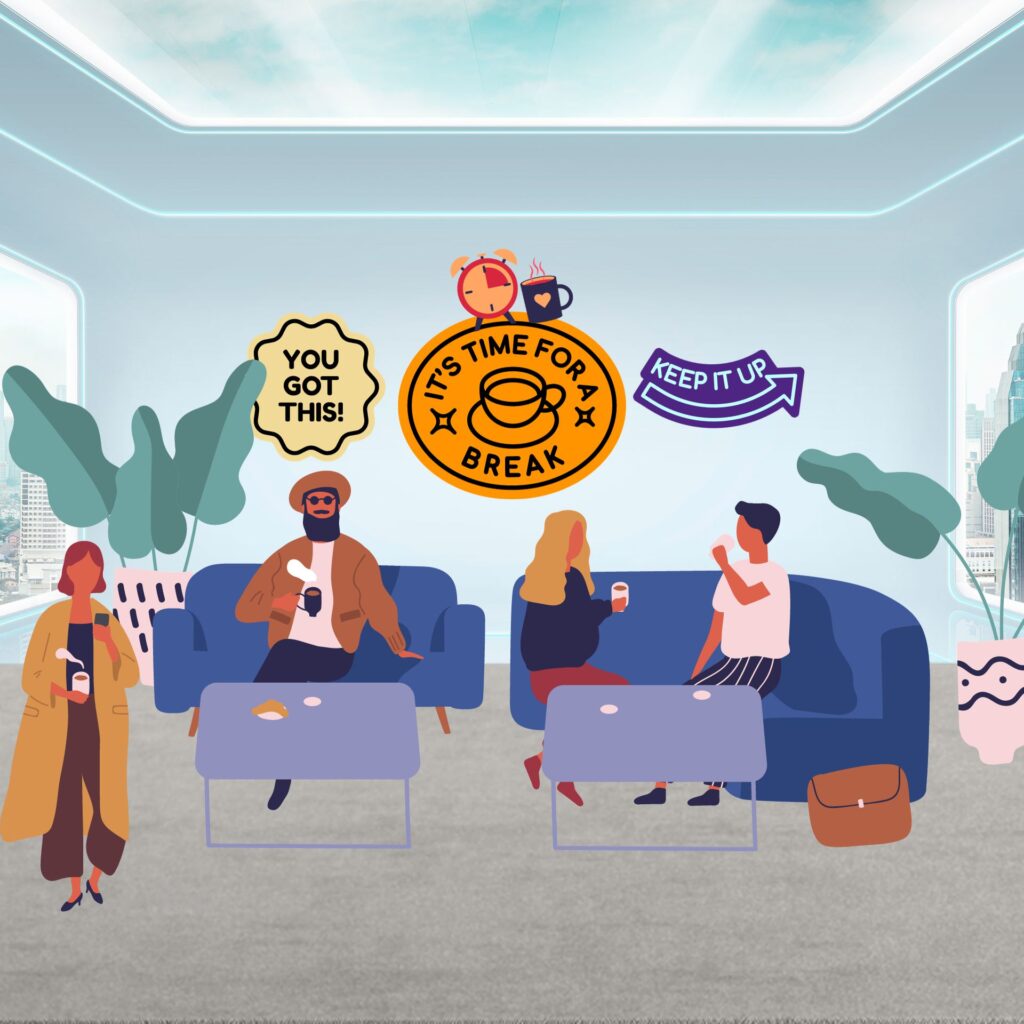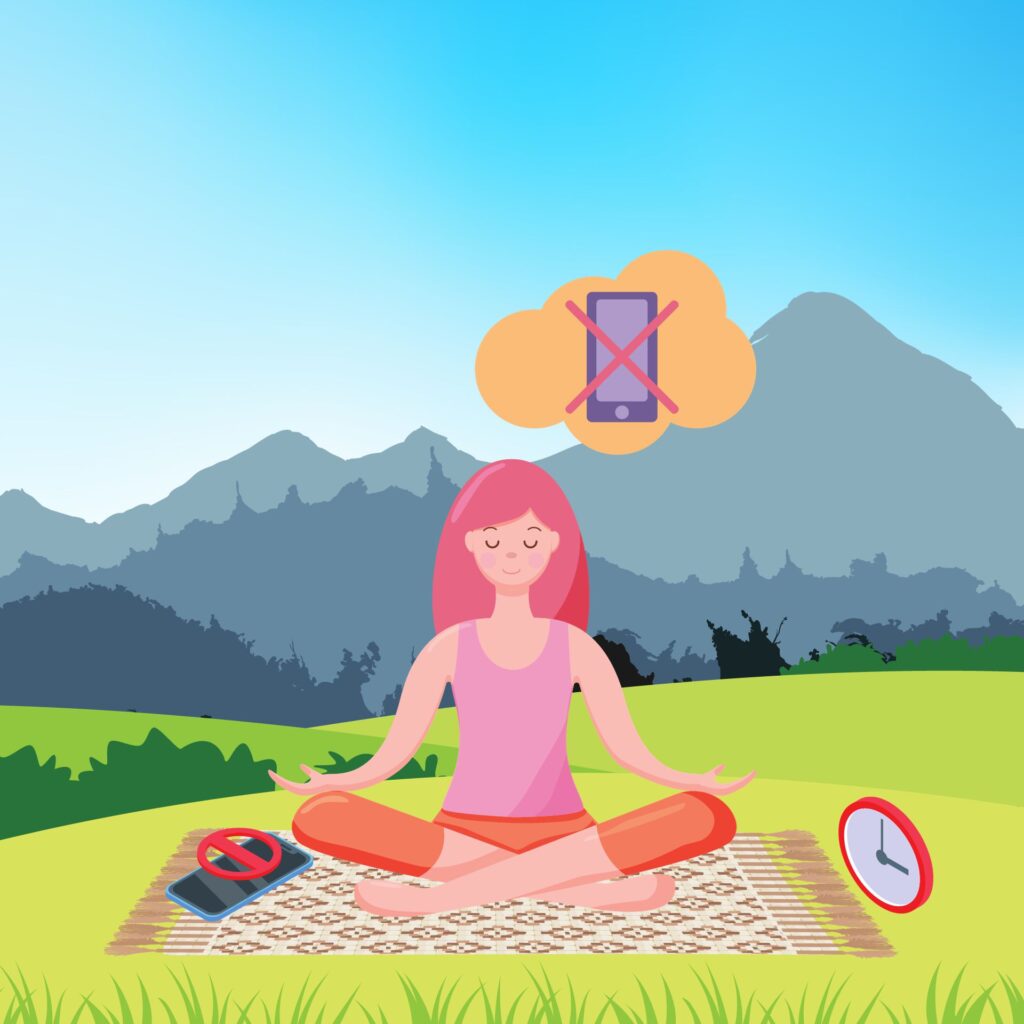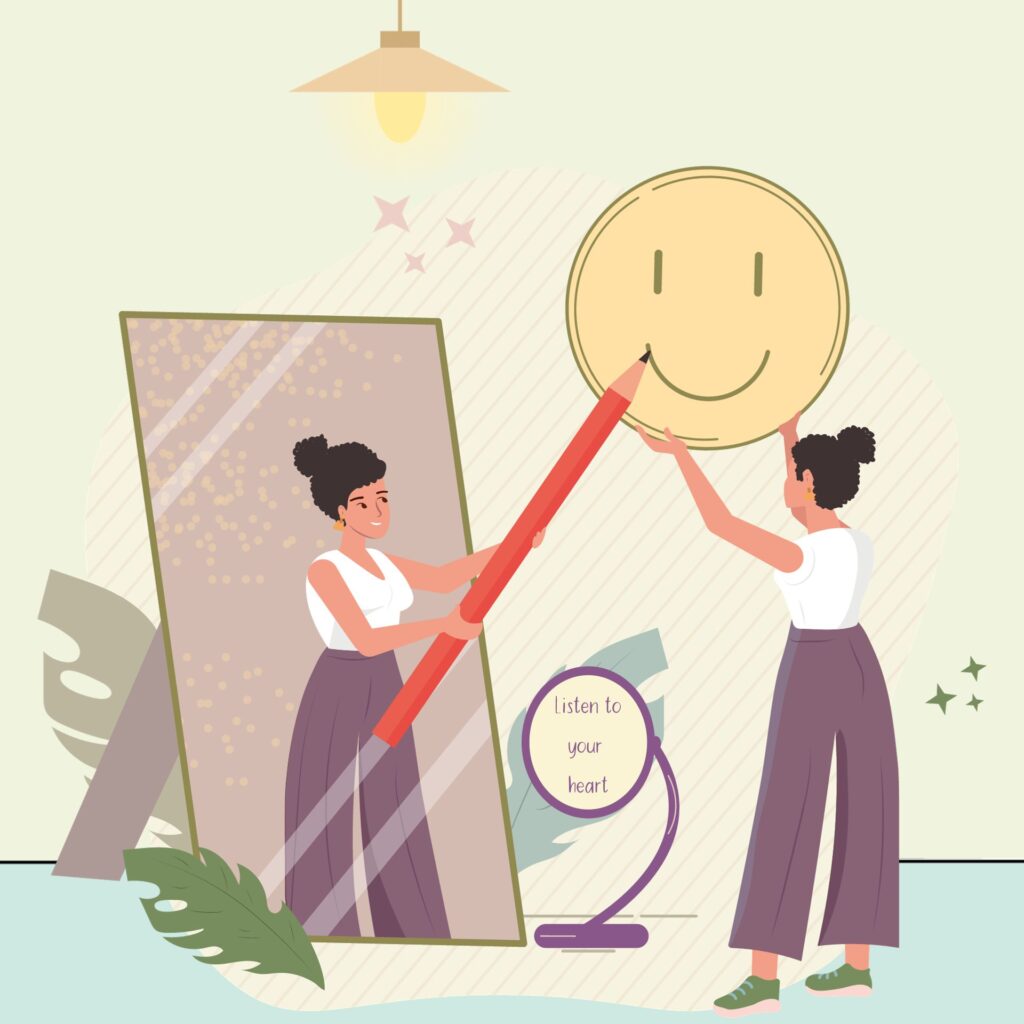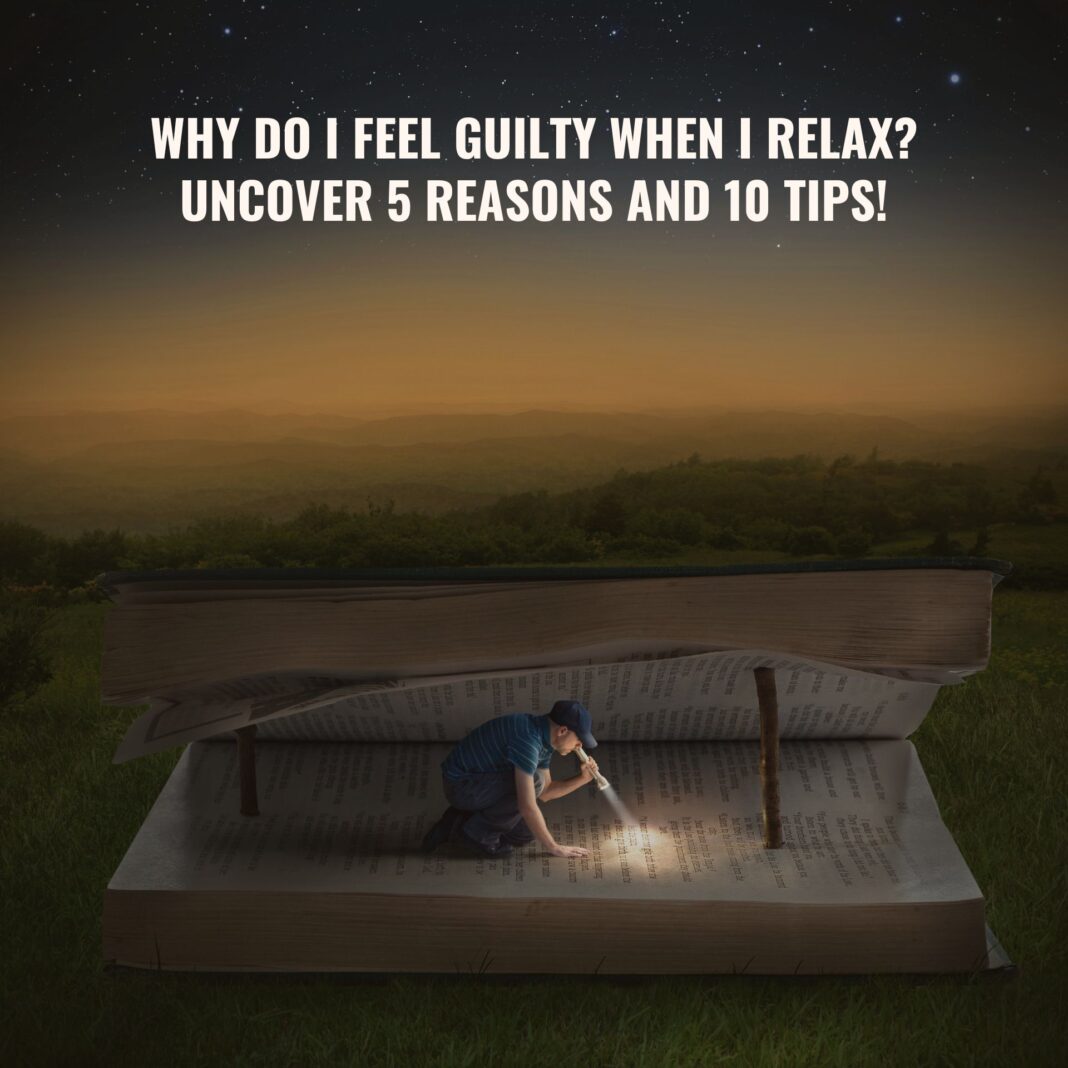Imagine this:
- It’s a pleasant Sunday afternoon.
- The sun is gently warming your skin.
- You’re comfortably settled with a captivating book in hand.
The world seems to pause for a moment, and you can finally relish a few precious hours of ‘me time.’
But wait, there it is again—the nagging guilt that sneaks in, whispering that you should be doing something more ‘productive.‘
If this scenario sounds familiar, you’re not alone. Many of us struggle with the paradox of wanting to relax yet feeling guilty when we do.
In our fast-paced world, where responsibilities pile up like a never-ending to-do list, relaxation often becomes a guilty pleasure. It’s as if our brains conspire against us, insisting we could be doing something more productive.
Does that persistent feeling resonate with you as well?
This guilt is not just a random occurrence; societal norms, personal expectations, and technological advancements contribute to it. Don’t we often associate relaxation with laziness? We have long believed that being busy means being productive.
It’s time to dissect this feeling, analyze it, and ultimately let it go.
Table of contents
- Why Do We Feel Guilty About Relaxing in the First Place?
- 10 Practical Tips to Overcome Relaxation Guilt
- 1. Get Organized Yet Flexible
- 2. Embrace Short Breaks
- 3. Delegate, Share, and Breathe
- 4. Be Mindful of Present Moments – Practice Conscious Living
- 5. Schedule Relaxation, Plan ‘Me Time’
- 6. Set Boundaries
- 7. Detoxify Your Digital Life
- 8. Listen to Your Mind & Body
- 9. Track Your Working Hours & Achievements
- 10. Practice Affirmation and Visualization – Reimagine ‘Relaxation Time’ as ‘Recovery Time’
- Final Thoughts
Why Do We Feel Guilty About Relaxing in the First Place?
From the weight of cultural expectations to the relentless pull of the digital age, from ceaseless comparisons with others to the looming fear of falling behind, there are various and endless factors that can contribute to feeling guilty when relaxing.
Let’s delve deeper into these significant factors.
1. Cultural and Societal Expectations

From a young age, many of us are raised with the belief that constant busyness translates into virtue. Societal expectations emphasize productivity and work ethic, often casting relaxation as a villain.
Think about it—how often have you heard the phrase, “Idle hands are the devil’s workshop“? These beliefs are ingrained into our minds, preventing us from taking time to unwind and nurture ourselves.
Life is really simple, but we insist on making it complicated.
– Confucius
2. A High Level of Online Exposure
In today’s digital world, the pressure to be more productive is more intense than ever before. We’re glued to screens, bombarded with notifications, and chased by an ever-growing list of tasks. In this environment, relaxation can feel counterproductive, even wrong.
The constant buzz of the online world can make you believe that there’s no time for leisure, leading to guilt when you do take a break.
3. Comparison with Others
Thanks to the advent of social media, comparing ourselves to others has become a way of life. Scrolling through LinkedIn, Instagram, or Facebook, it’s easy to think that everyone else is doing more, achieving more, and living life to the fullest.
Consider this scenario: You’ve just opened LinkedIn to post an update, and the temptation to check your Newsfeed to see what’s happening in your network draws you in. As you scroll, you come across stories of your school friend’s promotion and your ex-colleagues well-deserved recognition—achievements that you’ve aspired to for some time.
This constant comparison intensifies guilt when you decide to relax, as it seems like everyone else is doing more. It pushes you to stay on a never-ending cycle of productivity.
Always remember that you are absolutely unique. Just like everyone else.
– Margaret Meade
4. Fear of Falling Behind
The fear of missing out or falling behind in life’s race can be paralyzing. This fear is a significant driver of relaxation guilt. You may worry that taking a break means forfeiting opportunities or losing your competitive edge.
It’s like a game of musical chairs, and you’re afraid there won’t be a seat for you when the music stops.
5. Perfectionism

A perfectionist tends to hold themselves to very high standards. They may think that relaxation is incompatible with their desire for perfection. This feeling of guilt stems from the belief that leisure time is unproductive and doesn’t contribute to their pursuit of excellence.
Perfection itself is imperfection.
– Vladimir Horowitz
All You Need Is a Positive Reinforcement
Each time you feel that guilt creeping in while relaxing, remember this: you deserve to relax. It’s not an indulgence; it’s a necessity. Taking time off is your way of recharging your mental and emotional batteries so you can return to work with a fresh perspective and renewed energy.
As you embark on your journey to overcome relaxation guilt, consider reinforcing this idea with positive affirmations. Remind yourself that you are worthy of self-care, that downtime is essential for growth and well-being, and that you have every right to enjoy it without guilt.
Now that you have decided to indulge in self-care and relaxation without guilt, it is time to put that belief into action. We will explore 10 practical strategies to help you overcome relaxation guilt and make the most of your well-deserved ‘me time.
10 Practical Tips to Overcome Relaxation Guilt
Ready to conquer relaxation guilt? Let’s embark on a journey of self-care and well-being with these 10 practical tips. Each tip is a step towards guilt-free relaxation and a happier, healthier you. Let’s begin with the first tip.
1. Get Organized Yet Flexible

Are you unable to relax when you need to? Do you feel guilty every time you take a break? It’s an everyday struggle, especially when our work and responsibilities are disorganized. The chaos can leave us anxious, making it hard to embrace those well-deserved moments of relaxation.
The key to conquering this dilemma is a blend of organization and adaptability. As the saying goes, “Failing to plan is planning to fail.“
By failing to prepare, you are preparing to fail.
– Benjamin Franklin
Maintaining an organized approach can make a world of difference in managing your time and responsibilities in our fast-paced lives. Start by creating a schedule that precisely outlines your work tasks and personal commitments. This structured approach helps you gain a clear picture of your daily or weekly commitments.
But remember, life is full of surprises. Being too rigid in your planning can backfire, leading to guilt when things don’t go according to plan. Embrace flexibility by allowing room for uncertainty and unexpected opportunities. When you can adapt to the unexpected, you reduce the stress of always being productive. This shift in mindset makes it easier to engage in guilt-free relaxation.
Here are some practical steps to implement this tip:
- Set up a daily or weekly schedule that outlines your work tasks and personal time.
- Prioritize your to-do list to ensure you tackle the most critical tasks first.
- Assign specific time slots for relaxation and self-care, and treat them as non-negotiable appointments.
- Be prepared for life’s twists and turns. Embrace change and adapt your schedule as needed.
Getting organized while remaining flexible will allow you to take time for relaxation without feeling guilty, as you will know that your responsibilities are well-managed. This balance lets you relax guilt-free while savoring your “me time.“
2. Embrace Short Breaks

Finding time for an extended vacation amid your hectic schedule might seem like an impossible dream. However, that’s where short breaks come into play. Whether or not you can manage an extended vacation, incorporating short breaks into your daily routine is a powerful way to stay energized and maintain your productivity.
Short breaks are like mini-vacations in your daily life. They offer you the chance to step away from your busy routine, even if it’s just for a few minutes or hours. Think of them as your go-to solution for recharging and rejuvenating without leaving your workspace.
In our fast-paced world, where workloads and responsibilities seem endless, the importance of these micro-pauses cannot be overstated. Short breaks provide you with the opportunity to catch your breath, clear your mind, and reset your focus.
Now, let’s dive into the practical steps for implementing short breaks effectively:
- Choose Your Task: Select the task you want to accomplish. To make the most of your short breaks, you can also employ the Pomodoro Technique. This time management method divides your work into 25-minute intervals, each followed by a 5-minute break.
- The Pomodoro Rhythm: When the timer rings after your productive 25 minutes, it’s time for a short break of 5 minutes. The magic of the Pomodoro Technique lies in its consistency. After completing four Pomodoros, reward yourself with a longer break of 20 to 30 minutes to recharge fully.
- Your own type of relaxation: During your short breaks, embrace a moment of mindful breathing, go for a brisk walk, or indulge in a brief power nap. To put it simply, do whatever suits your preferences and refreshes your mind. This flexibility ensures that your break aligns with your unique needs and helps you find peace amidst the hustle and bustle.
By incorporating these actionable tips into your short breaks, you’ll enhance your relaxation experience and supercharge your overall productivity. Short breaks are an opportunity to unwind, refresh, and prepare for your next burst of focused work, all without the burden of guilt.
3. Delegate, Share, and Breathe

Are you often overwhelmed by a never-ending to-do list? Do you struggle to relax because of the weight of responsibilities? It’s time to master the art of delegation, sharing, and taking a deep breath.
Realize that you are capable of doing anything but not everything. And the following quote signifies it.
When we attempt to juggle everything on our own, we often perform tasks inefficiently and make errors. Doesn’t the best way to accomplish a lot lie in doing a few things with great precision rather than doing an endless number of poor-quality tasks?
Recognize that attempting to do too much at once can diminish results. Your time is finite, so success hinges on prioritization.
Delegating tasks, sharing responsibilities, or seeking support can significantly reduce your workload and create room for leisure.
Here’s how to do it:
- Delegate Tasks: Begin by identifying tasks that others can handle effectively. Remember, delegating doesn’t mean you’re shirking your responsibilities; it’s an intelligent way to distribute the workload. Whether at work or home, you can entrust specific tasks to colleagues, friends, or family members who are willing to help. Remember, seeking help is a sign of strength, not weakness.
- Share Responsibilities: Recognize that you don’t have to shoulder every responsibility alone. Whether it’s managing household chores or collaborative work projects, teamwork makes the task more manageable. Share tasks and responsibilities with those around you. It eases your load, strengthens bonds, and fosters a sense of community.
By incorporating these various strategies, relaxation becomes easier since one does not have to face it all alone. This realization can be crucial in achieving a state of calmness, essential for productivity and overall well-being.
4. Be Mindful of Present Moments – Practice Conscious Living

Be mindful of the present moment because it is all you have. Realize that life unfolds in these precious present moments, so do not let the shadows of the past steal your grip on the here and now.
Let go of past regrets, as you can never change the past. No amount of dwelling can rewrite it. Likewise, do not be burdened by the unknowns of the future; worrying without action will merely keep you stuck.
The truth is that we cannot go back in time nor jump into the future; all we have is the present moment.
Realize deeply that the present moment is all you ever have. Make the Now the primary focus of your life.
– Eckhart Tolle
It’s time to embrace the power of mindfulness and conscious living to break free from the chains of unnecessary guilt.
Here’s how you can unlock the potential of present moments:
- Begin your day consciously: Set a positive tone by committing to a simple morning ritual. It can be as short as a five-minute meditation or a few moments of gratitude. These small steps can help you feel centered and prepared to start the day with a clear purpose.
- Practice mindfulness: Whether you’re working, spending time with loved ones, or simply taking a walk, practice being fully present in the moment.
When you’re mindful, you free yourself from regrets of the past and worries of the future. Make the present moment feel alive by embracing sensory experiences, such as the warmth of the sun, the sound of laughter, or the taste of your favorite meal.
- Create a worry list: Worries or regrets often sneak into our relaxing time. It is here that the worry list comes to our rescue, allowing us to counter them.
Make a note of any concerns or tasks that come to mind and reassure yourself that you’ll address them at an appropriate time. With this conscious way, you can release these thoughts and focus on relaxation.
- Embrace simplicity: You don’t need fancy plans or exotic destinations to unwind. Sometimes, enjoying a good book, a cup of tea, or watching the sunset can be extremely fulfilling. Make the most of life’s simple moments.
By weaving these practices into your daily life, you can train your mind to embrace the present moment. Conscious living allows you to be fully engaged in your activities. It’s about recognizing that the present moment is a gift, and you deserve to appreciate it fully.
5. Schedule Relaxation, Plan ‘Me Time’

Are you tired of always putting yourself at the bottom of your priority list?
In today’s fast-paced world, we often forget to recharge our batteries by not scheduling recreation time. We often forget that taking time for ourselves isn’t a luxury but a necessity for our mental health.
Remember, one does not need to wait until burnout strikes to think about their own well-being. It’s time to take control of your schedule and make room for ‘me time.’ When you schedule relaxation, you’re making self-care a non-negotiable part of your day.
Think of it this way: if you don’t prioritize your well-being, who will?
The more you praise and celebrate your life, the more there is in life to celebrate.
– Oprah Winfrey
The quality of your life depends on the thoughts you nourish your mind with. It is your thoughts that make you who you are. So, feed your mind wisely and observe how it can change your life for the better.
Start by designating specific times in your daily or weekly calendar exclusively for ‘me time.’ These appointments are just as crucial as any work meeting or appointment with others. Treat them with the same level of importance.
Here are some practical steps to help you make ‘me time’ a scheduled commitment:
- Make ‘Me Time’ a priority: Designate time in your day or week entirely devoted to relaxation and self-care. Depending on your availability, this can take as little as 15 minutes or as long as a full day. Mark these time slots in your calendar, making sure they remain uninterrupted.
- Personalize Your ‘Me Time’: ‘Me time‘ is a broad concept, and we all define it differently. Whether you are out for a walk, reading a book, practicing yoga, or simply doing something you enjoy, tailor your ‘me time‘ activities to your interests and preferences.
- Say No Without Guilt: When you’ve scheduled ‘me time,’ be willing to say no to other commitments during those times. Prioritizing your well-being can sometimes mean declining other obligations and requests.
By intentionally scheduling relaxation and ‘me time,’ you are giving yourself time to recharge and rejuvenate. Self-care is not a luxury but a necessity for your well-being.
By committing to this practice, you are making a powerful statement that you are worth the time and effort it takes to nurture yourself.
6. Set Boundaries

In our digital age, maintaining a distinct separation between work and personal time has become increasingly challenging, especially with the rise of remote work culture.
Many of our daily tasks and responsibilities are now intertwined with our devices. As a result, transitioning back into work mode can be as effortless as receiving a single email notification.
Without well-defined boundaries in place, it’s all too easy for external pressures to invade your precious moments of relaxation. This often leads to feelings of being overwhelmed and guilty, diminishing the quality of your ‘me time.’
That’s why establishing clear boundaries and communicating them effectively to others is more critical than ever. In an era where the line between work and personal life is becoming increasingly blurred, setting these boundaries is your key to uninterrupted relaxation and rejuvenation.
Here’s how to create and maintain effective boundaries:
- Communicate Your Needs: Let those around you know when you need a moment for yourself. Whether it’s your family, friends, or colleagues, open and honest communication about your boundaries can help them understand your needs and respect your personal time.
- Prioritize Self-Care: Recognize that self-care is not a luxury; it’s essential for your well-being. Make self-care a non-negotiable part of your routine, and set aside dedicated time for activities that recharge your body and mind.
- Saying No: Understand that it’s okay to decline requests or commitments that may interfere with your ‘me time.’ Learn to say “no” without guilt, knowing that you’re taking care of yourself.
- Establish a Relaxation Space: Designate a physical space, such as a peaceful corner in your home, as your relaxation sanctuary. Make it a place where you can escape from external pressures and enjoy some quality “me time.”
Take the first step today toward a more fulfilling and guilt-free relaxation experience. These boundaries can act as a protective barrier, allowing you to fully embrace the benefits of relaxation while protecting your precious moments of self-care.
7. Detoxify Your Digital Life

In today’s digital age, much of our work is carried out through screens. While electronic devices offer incredible convenience and connectivity, it’s equally vital to periodically detoxify our digital lives as part of our daily routine.
Picture this: You’re diligently using the Pomodoro technique to stay productive, and after every four focused sessions, you treat yourself to a 20-minute break. During this break, it’s tempting to dive into the endless world of social media. However, the experience can quickly transform from relaxation into a sense of inadequacy when you see your school friend’s new job, your college friend’s engagement, or your favorite influencer with your dream car. It’s easy to feel like you’re falling short in comparison.
Yet, it’s crucial to remember that these breaks are meant to provide a moment of inner connection rather than external comparison. To truly understand ourselves and appreciate our unique journey, we need to embrace the concept of ‘me time.’
Permitting ourselves to explore our inner selves during these breaks can help us escape the constant comparison trap. Self-reflection and self-compassion help us genuinely celebrate the successes of our peers and friends. They allow us to move beyond envy and instead feel proud and inspired by their achievements.
In a world saturated with digital distractions, ‘me time‘ becomes a sanctuary for self-discovery and inner growth. It’s during these moments that we reconnect with our true desires and aspirations.
Here are some tips for detoxing your digital life:
- Set Digital Boundaries: Establish specific times to unplug from your devices each day. Whether it’s during meals, in the evenings, or before bedtime, establishing boundaries can help you reconnect with the real world and disconnect from the digital one.
Set aside time for screen-free activities throughout the day. Use this time to engage in hobbies, spend time with family and friends, or simply enjoy moments of solitude.
- Turn Off Notifications: The constant buzzing and pinging of notifications can disrupt your peace of mind. Make sure you’re in control by customizing your notification settings. Keep only the essential ones, and turn off the rest. Your devices will no longer control your attention.
- Unplug Before Bed: Disconnect from your devices at least an hour before bedtime. Use this time to relax, unwind, and prepare yourself for restful sleep.
By detoxifying your digital life, you can allow yourself to relax guilt-free. You will likely find that being present in the real world rejuvenates you and enables you to savor your moments of self-care fully.
8. Listen to Your Mind & Body

Your body knows you better than you might think. In our fast-paced lives, we often overlook the signals our mind and body send us.
Many of us push ourselves past our limits, ignore stress, and never take a moment for self-care. It’s time to become aware of your inner self and prioritize your well-being.
Remember, your mind and body are the most reliable sources of information. They communicate your needs and limitations through various signals and emotions. Listening to them is crucial for maintaining balance and preventing burnout.
Here is how to tune in:
- Practice Self-Reflection: Take a few minutes each day to reflect on your mental and emotional well-being. Are you feeling overwhelmed, stressed, or anxious? Recognize these emotions as signals to slow down and relax.
- Mindful Breathing: Incorporate short breathing exercises into your day. Taking focused, deep breaths can relieve stress, calm your mind, and stay in the present moment.
- Regular self-checks: Schedule brief check-ins with yourself throughout the day. Evaluate your mood, energy, and stress levels. Whenever you feel drained or overwhelmed, it’s time to recharge.
By actively listening to your mind and body, you’ll become better equipped to care for yourself. This practice enables you to identify stressors early, leading to a more relaxed and balanced life. When you prioritize self-awareness, relaxation becomes a guilt-free and essential part of your routine.
9. Track Your Working Hours & Achievements

Feeling overwhelmed by our ever-growing to-do lists is a shared experience for many of us.
With a seemingly endless array of tasks, keeping track of accomplishments can be a powerful motivational tool. With this practice, you can maintain control over your responsibilities, boost your confidence, and make the most of your time.
The key takeaway? By tracking your work, you not only create a tangible record of your accomplishments but also reduce your chances of experiencing guilt when relaxing.
Here are some practical steps you can take to find the balance between work and relaxation:
- Set Clear Goals: Before embarking on your workday, set clear objectives and tasks you aim to complete. Clarity in your goals keeps you motivated and focused.
- Master Time Blocking: Divide your work into time blocks. For instance, you can use the Pomodoro Technique. This method encourages focused, 25-minute work intervals followed by 5-minute breaks. This approach may enhance productivity and ensure regular relaxation.
- Make Use of Productivity Tools: Employ productivity tools or apps to help monitor your working hours and tasks. Most Pomodoro apps include time-tracking features to help you keep track of your working hours.
- Celebrate Small Wins: Each time you accomplish a task or reach a goal, take a moment to celebrate. Recognizing your achievements fosters self-esteem and motivation.
- Analyze and Improve: At the end of your workday, evaluate your productivity and achievements. Reflect on your strengths and areas for improvement.
By tracking your working hours and accomplishments diligently, you gain a firm grip on your time, nurture your sense of achievement, and grant yourself well-deserved relaxation without guilt.
10. Practice Affirmation and Visualization – Reimagine ‘Relaxation Time’ as ‘Recovery Time’

The power of the mind is astounding. Ultimately, we are driven by our minds. By practicing positive affirmations and visualization, you can reshape the way you perceive leisure time.
Instead of viewing it merely as “relaxation,” consider reframing it as “recovery” time – a period of rejuvenation and self-nurturing. This shift in mindset can transform the way you approach relaxation and make it more effective.
Here’s how you can harness the potential of affirmation and visualization:
- Positive Affirmations: Start your day with positive affirmations that emphasize the importance of recovery time. Affirmations like “I deserve this time for self-care,” “My well-being matters,” and “I am recharging my energy” can provide the foundation for guilt-free relaxation.
- Visualization: Close your eyes and picture yourself in a relaxing or recuperating situation. Visualize yourself entirely at ease, stress-free, and fully charged. The practice of visualization prepares your mind for relaxation as a transformative and rejuvenating process.
- Affirmation Journal: Maintain an affirmation journal where you can write down positive affirmations regarding relaxation and recovery. A journal allows one to keep track of their entries and strengthens this healthy mindset over time.
Reframing “relaxation time” as “recovery time” with the power of positive affirmations and visualization can make your relaxation periods more meaningful and guilt-free. Committing to your overall well-being will likely get a strong, well-balanced return from these moments.
Final Thoughts
In a world that often glorifies busyness, the guilt associated with relaxation is a common yet unnecessary burden that many of us carry.
Now, it’s time to take action. In the hustle and bustle of our lives, relaxation often takes a backseat, and when we finally do indulge in it, we may feel an unjustifiable guilt.
But why should you feel guilty about taking care of yourself? Relaxation isn’t a luxury; it’s an essential component of your well-being. So, go ahead and unapologetically make time for your own well-being.
Through our exploration of relaxation guilt, we’ve uncovered several underlying causes, including cultural expectations, online exposure, comparisons, the fear of falling behind, and perfectionism. Now, it’s time to break free from this guilt and find a path to balanced well-being.
Start by embracing positive reinforcement. It’s time to put self-care first and watch your well-being flourish. So, go ahead, unplug, breathe, and savor guilt-free moments of relaxation. Your mind, body, and soul will thank you.
Reclaim your well-being and redefine relaxation as an integral part of your journey.

